Energy Minister Mathew Nkhuwa says Zesco’s proposed power tariff hike will be effected without waiting for the cost of service study to be completed because the utility is “bleeding”.
Meanwhile, Nkhuwa says that the fuel pump price will have to be reviewed following the kwacha’s sharp depreciation against major convertible currencies.
Speaking to journalists after officiating at the launch of the Cost of Service Study, Tuesday, Nkhuwa announced that Zesco’s proposed power tariff hike would be effected without having to wait for the Cost of Service Study to be completed because the utility was “bleeding”.
He, however, said that the review of the existing power tariffs would only be effected, pending Cabinet approval.
Zesco’s proposed 113 per cent retail tariff hike was submitted to the ERB last month, which they projected would earn the utility an unprecedented K16.1 billion in gross revenues, if approved.
“I think from where we are sitting, Zesco is bleeding badly so the tariff adjustment, if they get approved by Cabinet, they will be implemented and when the Study is done, then they will be adjusted accordingly,” Nkhuwa said.
And he disclosed that Zesco finally managed to pay for the electricity imports received from Eskom using money realized from selling power to the mines.
He added that while Zesco was able to fund power imports, government would still contribute financing in the event that rainfall remained insufficient.
“The source of funding is Zesco, that’s paid from its income from the mines. We don’t have money to sustain, which is better. Are we going to shut down the economy of the country because we have no money? We just have to reduce the other competing needs; there are a lot of needs so we have to choose which ones will not receive attention. In this particular case, power comes number one so some of the competing needs will be left out and we have to buy the power. These phones wouldn’t be working if they had no power, all the cameras wouldn’t be able to go on. So, if you have a total blackout, it’s terrible, you are better off even having power for 2 hours at least you can charge your phones and charge your apparatus for you to be able to work. We just hope that there will be water; if there is no water, then we will just have to import some more electricity,” he added.
Nkhuwa insisted that there was nothing to hide on Zesco’s Power Purchasing Agreement (PPA) with Eskom.
“In terms of transparency, we are transparent, what have we got to hide? I mean, if we have got no electricity, we tell you that we have no electricity, what have we got to hide? If we pay money for electricity, we tell you how much money we have paid. There is nothing for us to hide. On that office, what can you hide in the Ministry of Energy’s office, or in any government office because there are all sorts of people in the government offices; you get UPND, you get PF, you get ZRP or whatever party they are. There are all there so whatever information, the Ministry will have access to it so there is no point in giving false information,” Nkhuwa said.
“That’s a commercial agreement between Zesco and Eskom, it’s not a government issue, we are there for policy, so there is nothing that we are hiding. Unless Zesco is hiding something, I don’t think there is anything being hidden. There are a lot of agreements where there is non-disclosure agreement. You know that I am a Cabinet Minister and I have sworn to keep the secret of government, there are certain things that you don’t bring from the bedroom to…it’s not everything that you are going to bring out to everybody. You know that even if I leave government, I will be arrested and prosecuted if I start taking out government secrets at will. So, there are certain things that you don’t have to bring to the public.”
Meanwhile, Nkhuwa observed that fuel pump prices would have to be reviewed following the kwacha’s sharp depreciation against major currency convertibles.
“Every time the kwacha loses out, definitely, we have to re-calculate and see. So, I can’t rule out that, but at the moment we haven’t done that yet. But we will be able to inform the public when that time comes. Definitely, the price will have to change, I mean the kwacha now is trading at K14.69 to a dollar; the last time we adjusted the price of fuel, it was at K12 so now we are at K14, we expect to do something. ERB? It’s just that they have been busy, now that this (the launch of the Cost of Service Study) is behind them, they will start looking at these other issues,” cautioned Nkhuwa.
Earlier, ERB executive director Langiwe Lungu highlighted the terms of the Cost of Service Study that will be undertaken at a cost of approximately US $600,000.
“The ERB has procured Energy Market and Regulatory Consultants (EMRC) of United Kingdom to conduct the Cost of Service Study. The Study is financed by the African Development Bank (AfDB). The consultant was transparently hired through international competitive bidding following the financiers procurement guidelines for hiring consultants. The Study will need to look at 10 major deliverables, among them: review of structure and conduct of the power sector; electricity demand forecasts; medium to long-term least expansion plan; determination of economic cost of supply; structure and levels of tariffs and the life-line tariff mechanism; analysis of existing tariffs and adjustments to economic-based tariffs,” explained Lungu.
“Others are: the review of financial performance of Zesco and preparation of projections; determination of transmission wheeling charges; assessment of the ERB’s approach to tariff review; tariff adjustment roll-out strategies and a capacity-building programme to provide training for the technical staff of ERB; department of energy; Zesco limited, Copperbelt Energy Corporation (CEC) Plc etc. in order to ensure that future studies are undertaken in-house by Zambians.”





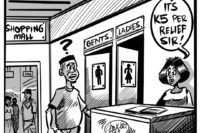

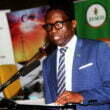
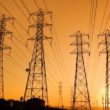

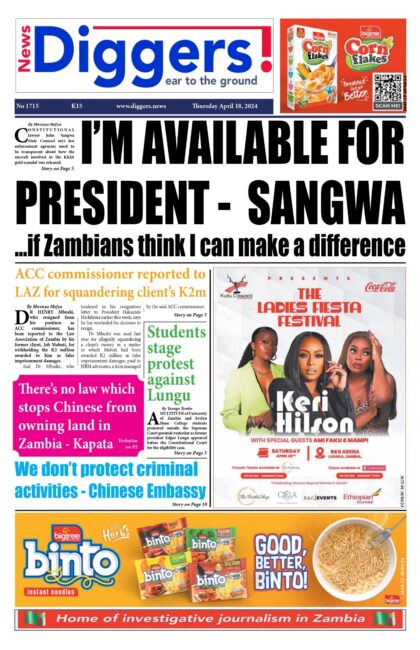
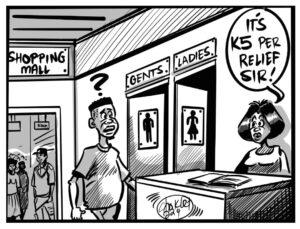

One Response
Energy Hikes; by this, we are all affected! Again and again we keep hearing hikes in the energy sector. Personally, I have never been convinced by their reasoning. Perhaps I need to go to UNZA or college to learn their language. Confusingly, when I finished grade 12, I got fair results. And this made me feel I am capable of understanding basic English. But when it comes to hikes in the energy sector, I completely get puzzled by their language. Evident enough, I am not the only one who expresses some dissatisfaction with the way fuel or electricity tariffs are hiked. This raises many questions in me; Do we have a negative attitude towards them? Do we abhor some hatred? Are we so ignorant to follow the hiking language? Maybe some people should pray for people like me and others who don’t like the way the hikes are done. I still have hope that Zambia is a blessed country. EMMANUEL!